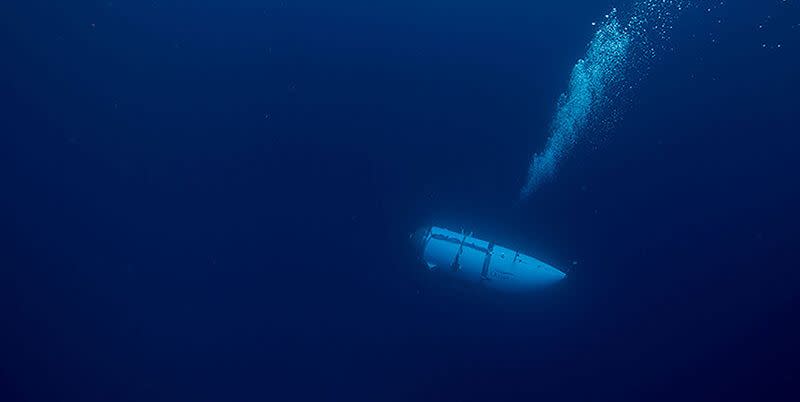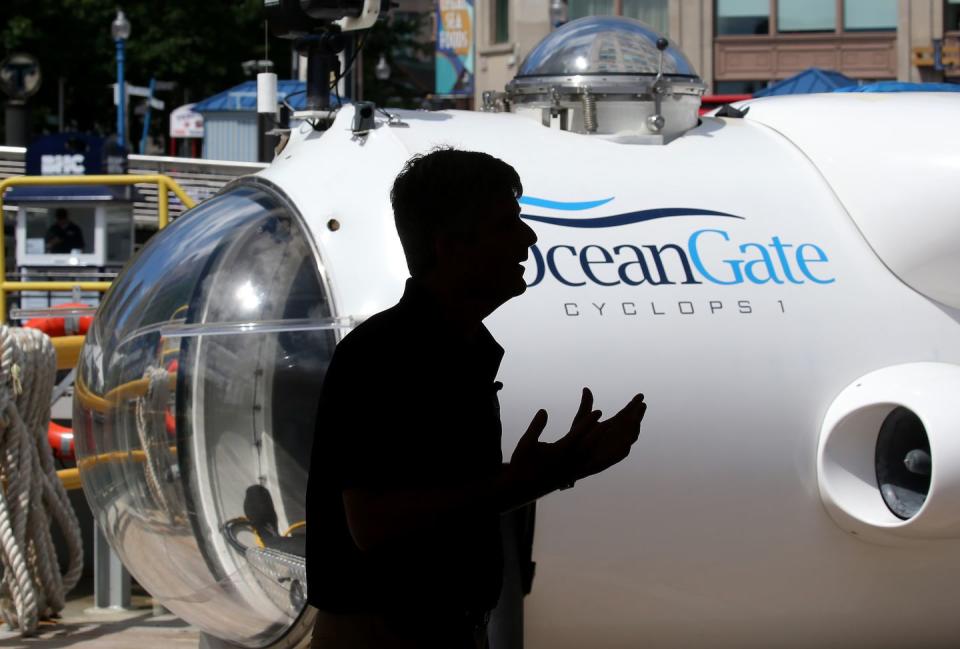The Titanic Sub: Ambition and Tragic Hubris in the North Atlantic Abyss

It's tempting to be as cynical as The Onion was on Wednesday when trying to figure out what to take from the Titanic submersible disaster: "Emergency Crews Dispatched To Help Boat Full Of Refugees Sink." Or, alternately: "Critics Say Submersible Should’ve Been Tested With Poorer Passengers First." The lost Titan sub, a vehicle for extreme tourism operated by a firm called OceanGate, is a testament to the divergence in Western attitudes when a maritime vessel fails while carrying the fabulously rich (a tragedy, they must be rescued) and penniless refugees (a tragedy, they should have stayed home). OK, plenty of us would say the rich folks should have stayed home and that the penniless should be rescued, though the extent to which anyone notices the penniless treading water out there is another question. Compare the pools of media coverage and general concern: for the tourists, an ocean. For the refugees, a pond.
The deaths of the five people on board constitute a genuine tragedy, the end of a four-day event that the cable-news networks welcomed with open arms as a sequel to The Lost Plane in Asia (2014). It was, in fairness, one hell of a story: a craft called Titan whose co-creator called a similar vessel "invulnerable" meets doom on its way to the doomed Titanic. The guy goes by Stockton Rush—surely a Temple Run-inspired nom de guerre—and, wielding a video-game joystick, he leads four others into the abyss: the French former Marine diver-turned-Titanic expert Paul-Henri Nargeolet; British billionaire, aviator, and Explorers Club member Hamish Harding; and businessman Shahzada Dawood and his 19-year-old son, Suleman, scions of one of Pakistan's wealthiest families. When the reports filtered in on how much oxygen rescuers thought remained in the sub's reserves, NewsNation demonstrated their concern with a Suffocation Countdown Timer.

Soon after a search vehicle found remains of the ship's structure around 1,600 feet from the Titanic wreckage, the U.S. Navy made public that they'd picked up a sound consistent with an implosion around the time that the Titan had lost contact with the mothership close to four days earlier. Even a small crack in the carbon fiber and titanium hull could have caused the ship to yield to the overwhelming weight of the Atlantic Ocean at more than 10,000 feet deep. Whether or not it's any solace to the families, the indications are it would have been quick, quick enough to make the multi-day experience the rest of us had almost illusory. None of it is what young Suleman deserved, the least culpable of the group, but the same can't be said of Stockton Rush.
The OceanGate CEO once told the Smithsonian magazine that the commercial sub industry was "obscenely safe because they have all these regulations," which he felt stifled the kind of innovation he brought to the Titan. He refused to have it inspected by an independent arbiter for safety, and OceanGate's director of marine operations, David Lochridge, was fired after writing a report communicating extreme concern about it. A letter from 38 experts in the industry went ignored, even if it expressed "unanimous concern" about the prospect of sending this thing into the deep to find the Titanic. The firm is based in Washington State, but Rush avoided all those burdensome regulations by operating in international waters without flying an American flag. Ships bearing those colors came to rescue him with their Canadian counterparts, however, courtesy of both countries' taxpayers. It's they who elect the government to make those pesky rules.
And it's here where we arrive on the parable of the renegade CEO, who wants no guardrails but a net to catch him when he falls. This is Aesop's Bank Bailout, a tale of comeuppance for someone who wants all the benefits of living in a commonwealth without giving anything up personally, who leads the civil servants of two countries in a race against time until it's revealed he was already gone for the entirety of it, crumpled by his own hubris. Except things aren't so simple, and not just because there were people on the sub who didn't ignore everything except getting asses in $250,000-a-pop seats as soon as possible. Two of those men were genuine explorers, people who stretch the perimeter of what humans have seen and know a few feet farther out in one direction. Even Stockton Rush, fool that he was, had this ambition that is the fire in our soul as a species. "I will go on all the first dives [and] put my money where my mouth is," he told CBS, and he kept his word.
Maybe it would be better, then, to hold up people who brave perilous maritime conditions even when they're not rich men of influence. People sailing away from economic devastation and war and persecution so they can reach out and seize a new life for themselves in a new land, even if there are already people living there. It was happening 300 years ago and it's happening now, because it is going to happen, always. Once we start accepting that, 300 lives lost in the Mediterranean might count at least as much as two in the Atlantic, particularly since they all shared the same homeland.
You Might Also Like

